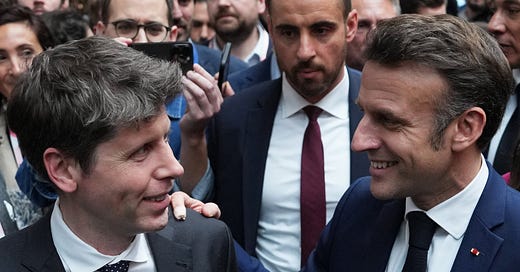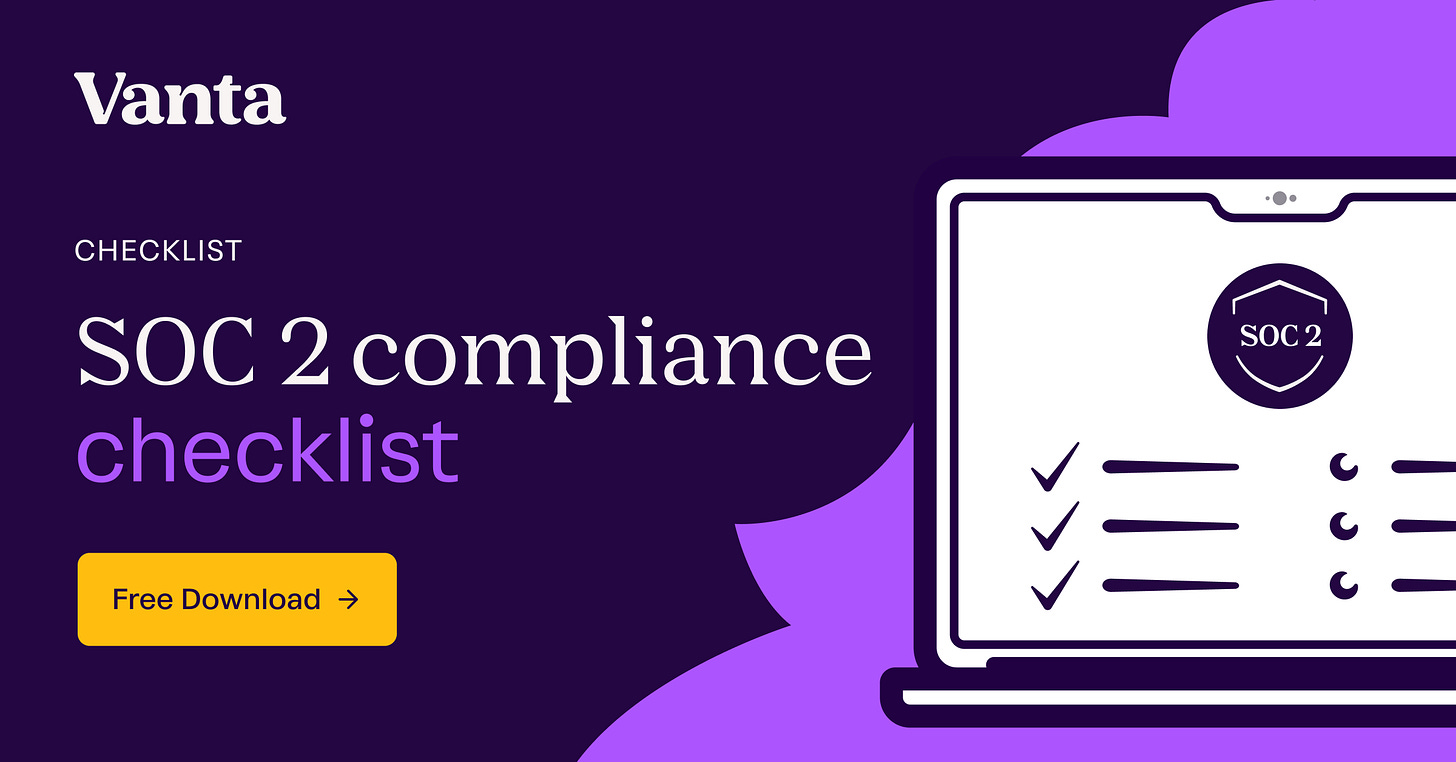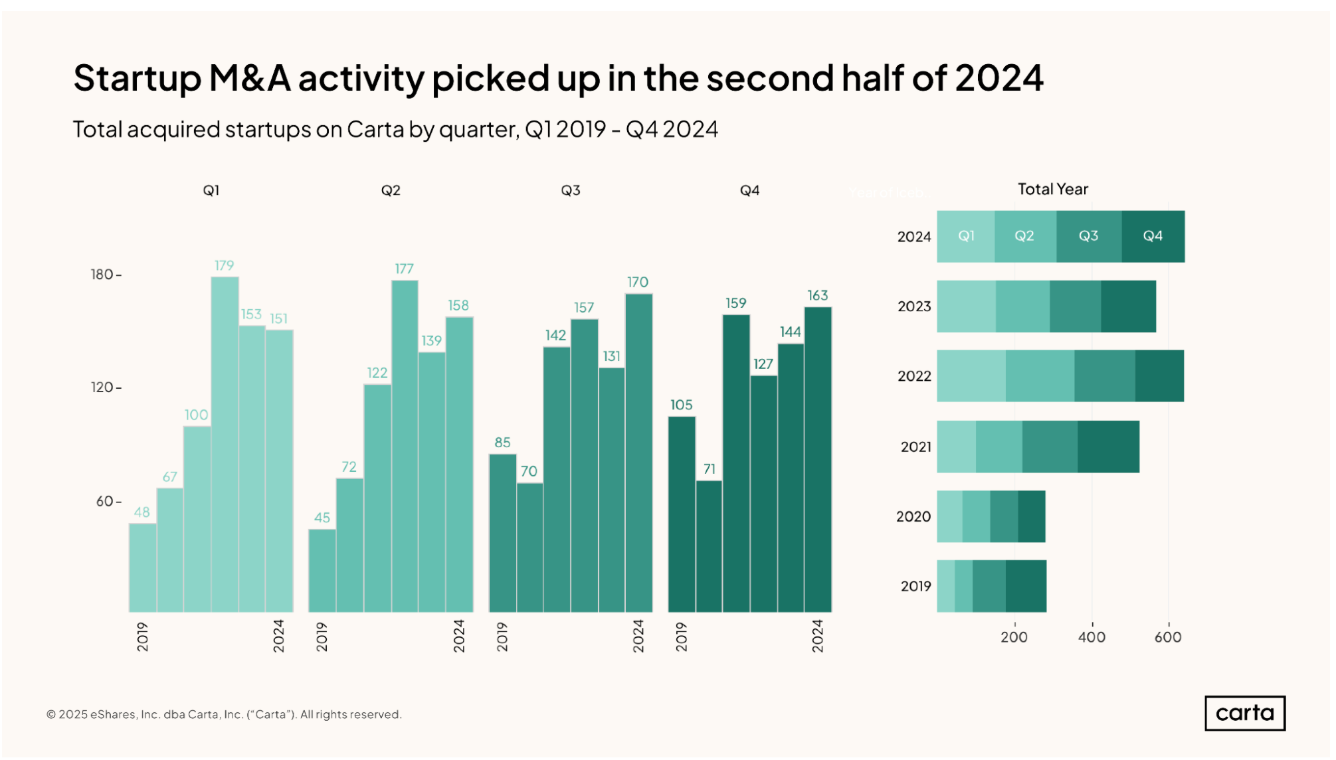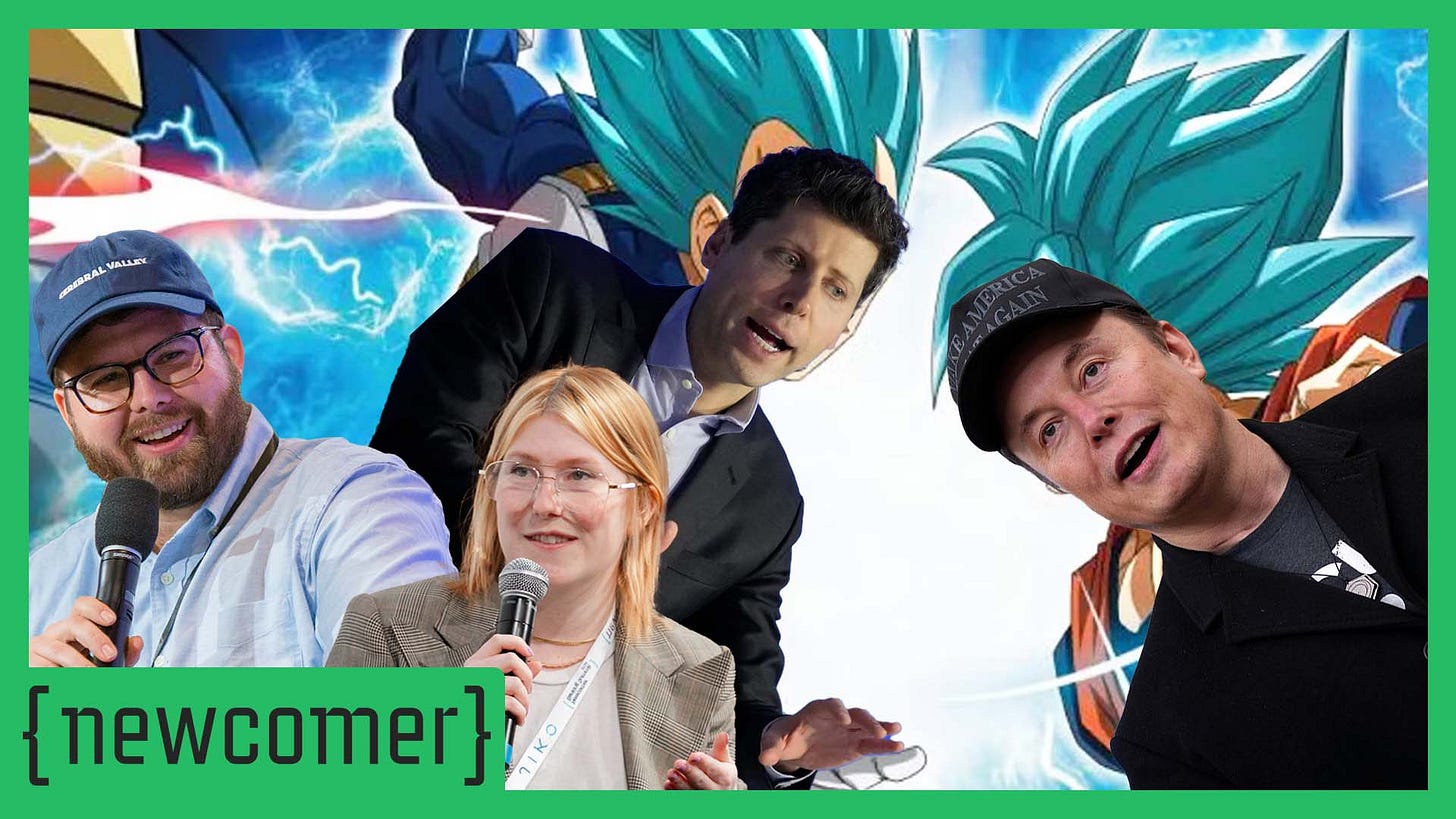Safety Third Is the New Motto at Paris AI Action Summit
Plus, Elon Musk's $97.4 billion challenge to Sam Altman
The Main Item
Europe Falls In Line With a US AI Vision
Europe has earned a reputation for hobbling innovation by moving slowly and making rules, but this week marked a moment of capitulation to Silicon Valley’s newly energized “accelerationist” ethos.
The Artificial Intelligence Action Summit in Paris, known in past years for its emphasis on AI safety, was all about investment and international competition. The summit’s annual report announcement was quite literally pushed into a back room while tech executives like Sam Altman, Sundar Pichai, and Dario Amodei mingled with world leaders and stressed the importance of moving fast.
“This conference was originally about AI safety, but it’s definitively moved to being about making money in AI,” Bloomberg Beta’s James Cham told me.
France pledged a gigawatt of nuclear power for a new national data center project to jumpstart its AI compute needs. Mistral, the banner AI lab of France, showed some American-style moves with its latest defense partnership with Helsing for “vision-language-action models” that will be helpful to military operators.
And the French telecom billionaire Xavier Niel, a charismatic deal-maker in the Silicon Valley mold, is vowing to fight for European AI. A key backer of the buzzy Paris tech incubator Station F, he’s pledged billions to fund entrepreneurs in France, and this week announced €3 billion more for infrastructure and for Europe’s first private independent AI lab, Kyutai, based in Paris.
The summit’s non-binding declaration on AI safety at the end of the gathering — limited to generalities about ensuring that “AI is open, inclusive, transparent, ethical, safe, secure and trustworthy, taking into account international frameworks for all” and “sustainable for people and the planet” — almost seemed like an afterthought.
The US and UK both refused to sign, a clear statement that even token acknowledgement of AI safety issues is unacceptable to the Trump Administration. The rest of the world — including China and India, which both supported the declaration — still wants to keep the conversation going at least.
“There’s been a divergence with the US and UK where these ‘commitments’ around AI safety are no longer a priority,” DoNotPay’s Joshua Browder told me. “Before the idea of AI safety was really to control risk, but now it’s about having the best people and the best technology.”
In an essay after the summit, Anthropic’s Amodei cautioned against pulling away too far from AI safety frameworks.
“Time is short, and we must accelerate our actions to match accelerating AI progress,” he wrote. “Possibly by 2026 or 2027 (and almost certainly no later than 2030), the capabilities of AI systems will be best thought of as akin to an entirely new state populated by highly intelligent people appearing on the global stage — a ‘country of geniuses in a datacenter’ — with the profound economic, societal, and security implications that would bring.”
But Vice President JD Vance’s speech Monday made it clear that the US has no time for such worries, and is taking an America-first approach; European startups can either tag along or risk being left behind by the US and China. “The Trump administration will ensure that the most powerful AI systems are built in the US with American designed and manufactured chips,” he said.
Europe certainly lags far behind the US in AI investment, and its tech sector overall remains tiny by comparison, without any flagship global leaders save the Netherlands’ ASML.
Venture investment into European AI startups dipped in 2023 to just under $12.9 billion, but recovered to $16.2 billion in 2024, per PitchBook. That compares with $100.9 billion for US AI companies.
A16z closed down its London office at the end of last month, a possible indication of the skepticism in some quarters that Europe can be a major player in AI.
But that is far from a consensus view: General Catalyst just unveiled a new “EU AI Champions Initiative,” which outlined a plan to invest in more European talent and accelerate AI adoption within big European companies.
UK investor Nathan Benaich noted that the location of offices isn’t necessarily an important indicator. “I’m not entirely convinced that US firms need to set up shop in Europe to really compete, as the principal appeal for European companies that seek US capital is that the capital is from teams that are based in the US,” he said.
Another encouraging sign for Europe’s tech efforts is a recent rally in European stocks, which have languished over the past several years even as US equities have soared. A sustained run of stronger stock prices would mean more investment capital for European companies as they chase the AI promise.
Optimism about a possible end to the war in Ukraine was a big factor in the recent gains, though, and the future of that conflict and a looming trade war could quickly change everything. AI risks are only one of Europe’s safety concerns at this perilous moment in history.
Brought to you by Vanta
Compliance for Startups: Download the Checklist
As a startup founder, finding product-market fit is your top priority.
But landing bigger customers requires SOC 2 or ISO 27001 compliance — a time-consuming process that pulls you away from building and shipping. That’s where Vanta comes in.
Join over 9,000 companies, including hundreds of Y Combinator-backed startups like Supabase, Newfront, and Fern who streamline compliance with Vanta’s automation and trusted network of security experts. Start with our SOC 2 compliance checklist, which breaks down the process into clear steps — so you can spend less time on compliance and more time growing your business.
One Big Chart
M&A Activity Picked Up At the End of 2024, Carta Shows
It’s been a dismal exit market for startups over the last two years, but data from Carta shows the trend reversing in the second half of 2024.
Per Carta’s State of Private Markets Q4 and 2024 report, startup M&A activity reached its highest level since 2019, with 333 deals in the last half of 2024 and 642 for the year. With the IPO market in a deep freeze, investors have been turning to secondary markets for liquidity for their LPs. But if this trendline is any indication, LPs could be seeing more cash in the first half of 2025.
Five Notable Deals
Harvey, Apptronik, QuEra, Eudia, Olipop
Two legal tech startups raised funding from big name firms this week, one of them as part of General Catalyst’s new roll-up strategy.
Legal assistant Harvey raised a $300 million Series D round led by Sequoia Capital. Other investors included Kleiner Perkins, GV, Elad Gil, Conviction, OpenAI Startup Fund, Coatue, and LexisNexis, at a $3 billion valuation.
Humanoid robot maker Apptronik raised $350 million in a Series A round co-led by B Capital and Capital Factory. Google also participated.
Quantum computing startup QuEra raised $230 million in a round backed by Softbank and Google.
Another legal tech startup, Eudia, raised a $105 million Series A led by General Catalyst with participation from numerous investors and angels including Floodgate, Sierra Ventures, Hakluyt Capital, Gokul Rajaram, Scott Belsky, and others (we scooped this round in October when it was under a different name, Cicero). The round includes $30 million up front and $75 million to come later to fund acquisitions, per General Catalyst’s new roll-up strategy.
Olipop, the maker of pre-biotic sodas, raised $50 million in Series C funding led by J.P. Morgan Private Capital’s Growth Equity Partners at a $1.85 billion valuation.
Stories We’re Reading
Musk vs. OpenAI, Anthropic & OpenAI Roll Up Reasoning, a16z Goes to Washington, Cohere in the Crosshairs
Elon Musk’s bid to buy OpenAI for $97.4 billion, along with investors including Valor Equity Partners, 8VC, and Ari Emanuel, threw a spanner in Sam Altman’s complicated effort to spin the AI juggernaut out from the non-profit that controls it. Altman jokingly responded on X that OpenAI would instead offer to buy X for $9.74 billion, and Tuesday told Axios that “OpenAI is not for sale,” but Musk’s gambit is a thorny problem for him, at best. Musk accuses Altman of straying from the nonprofit’s original mission, and he doubled down on this point Thursday morning, saying he would drop the offer if OpenAI remains under nonprofit control.
Anthropic’s latest Claude model could be arriving in the next few months, The Information reports, and will combine its traditional LLM with new “reasoning” capabilities into one product for customers. If this structure seems familiar, that’s because OpenAI’s Altman tweeted out that OpenAI’s plan for its long-rumored GPT-5 release will be structured in the same way — as an integrated product with its o3 reasoning model. “In both ChatGPT and our API, we will release GPT-5 as a system that integrates a lot of our technology, including o3. We will no longer ship o3 as a standalone model.”
Outside of Musk’s DOGE, more tech leaders from a16z are poised to become key leaders of Trump’s administrative state. The latest addition: Brian Quintenz, the firm’s head of policy in its crypto practice, is Trump’s latest pick to run the Commodity Futures Trading Commission. Quintenz previously served as a Republican commissioner for the CFTC during Trump’s first term. Growth investor Jamie Sullivan is also advising DOGE alongside Marc Andreessen, per The Information, and members of the firm’s talent team are helping the administration recruit government staffers. Meanwhile, Business Insider obtained a list of 30 DOGE staffers, including previously unreported ones with ties to Musk’s companies like investor Adam Ramada.
News publishers including The Atlantic and the LA Times are suing Canadian AI leader Cohere for copyright infringement, alleging that the company’s LLM regularly delivers full articles and also hallucinates in their name. The lawsuit from the News Media Alliance, which includes 10 other publishers, came a few days after a federal judge ruled in favor of Thomson Reuters in a similar type of case, the first major victory for publishers. Litigation including the New York Times versus OpenAI, and News Corp. versus Perplexity, is ongoing.
The Newcomer Podcast
Elon Musk’s Boisterous OpenAI Bid
Eric and Madeline unpack the biggest “deal that wasn’t” story of Elon Musk’s unsolicited offer to purchase OpenAI for $97.4 billion. With Sam Altman flat-out rejecting the offer on X, this feels less like an offer and more of a statement about Musk’s frustration with OpenAI’s continued conversion to a for-profit company. Pressures have been mounting on engineers to look for greener pastures, though, if Thrive Capital’s Joshua Kushner’s urging speech for talent to stay put is any indication.
They then turn to Eric’s reporting on Lightspeed Venture Partners’ new fundraising documents, where the megafirm showed stronger returns on earlier funds ahead of its next big capital raise. They also unpack the AI Action Summit’s 180-degree swing from an AI safety forum to a conference dominated by CEOs and accelerationist world leaders. They close with a breakdown with a who’s who on the cap table of legal-tech Harvey’s latest Series D, and Mercury’s rumored new Sequoia-backed fundraise.
Chapters
01:45 — Elon Musk’s Boisterous OpenAI Bid
10:29 — A Look at Lightspeed Venture Partners’ Fund Returns
13:07 — Europe’s Big AI Push At the AI Action Summit
16:59 — Harvey and Mercury Raise Fresh Funding
Reader Mailbag
Send Newcomer Your Burning Questions
We want to open the floor to you, Newcomer readers, to ask us anything you’ve been wanting to know about our stories, the newsletter, or just for our spiciest takes on the latest startup and VC trends.
You can submit your questions anonymously or put your name on them — the choice is yours. Scoops and tips are always welcome.
To submit a question, you can:
leave a comment on this post
send Eric a tweet at @EricNewcomer
use this Google form (especially if you want to submit an anonymous response)
respond by email — just reply to this post or email eric@newcomer.co. (We will honor requests for anonymity even if it’s obvious from your email who is writing in.)
We’ll post the answers to questions we receive next week for subscribers.










"Venture investment into European AI startups dipped in 2023 to just under $12.9 billion, but recovered to $16.2 billion in 2024, per PitchBook. That compares with $100.9 billion for US AI companies."
You really can't blame Europe for putting aside AI safety concerns so they can get their hands on more 💰